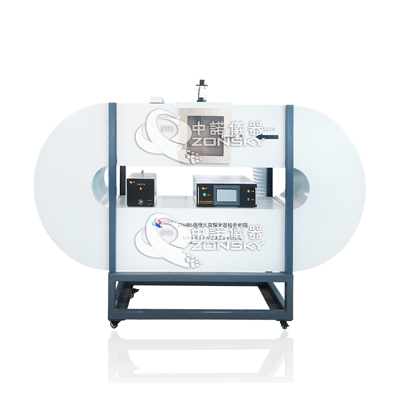Fire safety is a paramount concern in every building, and the reliability of Fire Equipment can make the difference between life and death in an emergency. In this article, we'll explore the vital role of fire equipment Testing Equipment in ensuring the effectiveness and functionality of fire suppression systems, alarms, and other firefighting tools.Fire equipment, including fire extinguishers, sprinkler systems, fire alarms, and emergency lighting, must perform flawlessly in case of a fire. Regular testing is essential to confirm that these systems are in proper working order, providing a crucial layer of protection for people and property.
In a fire emergency, there is no room for error. Fire equipment Testing Equipment plays a pivotal role in maintaining the reliability of these systems, ensuring they function as intended when needed most.Government regulations and industry standards mandate regular testing and inspection of fire equipment. Compliance not only guarantees safety but also avoids potential legal issues and liabilities for building owners and managers. Types of Fire Equipment Testing Equipment
Types of Fire Equipment Testing Equipment
Fire Extinguisher Testers: These devices assess the pressure and functionality of fire extinguishers, ensuring they can deliver the required firefighting agent effectively.
Sprinkler System Testers: Sprinkler system testing equipment evaluates the performance of these life-saving systems, verifying that they will activate correctly during a fire.
Fire Alarm Testers: These tools check the functionality of fire alarm systems, including smoke detectors, heat detectors, and notification devices, to guarantee timely and accurate alerts in emergencies.
Emergency Lighting Testers: Emergency lighting equipment ensures that exit signs and emergency lights remain operational during power outages or fires, guiding occupants to safety.
The frequency of fire equipment testing varies depending on local regulations and the type of equipment. Some items may require monthly inspections, while others can be tested annually. Building owners and facility managers must stay informed about these requirements.Fire equipment testing is typically carried out by certified professionals who have the knowledge and expertise to perform thorough inspections and address any issues that arise during testing.
Accurate record keeping is a crucial aspect of fire equipment testing. Detailed records should document the date of testing, any issues discovered, and the actions taken to rectify them.Regular fire equipment testing provides peace of mind, knowing that all firefighting systems are in optimal condition. It minimizes the risk of equipment failure during a fire event, helping to protect lives and property.
In conclusion, fire equipment testing equipment is a linchpin in the maintenance of fire safety measures. It ensures that fire extinguishers, sprinklers, alarms, and emergency lighting systems remain reliable and effective, contributing to the overall safety of buildings and their occupants. Complying with testing requirements and relying on certified professionals for inspections is a critical step in mitigating the devastating effects of fires and ensuring a safer environment for all.
 WhatsApp:
WhatsApp: Mobile Phone:
Mobile Phone: Contact Now
Contact Now